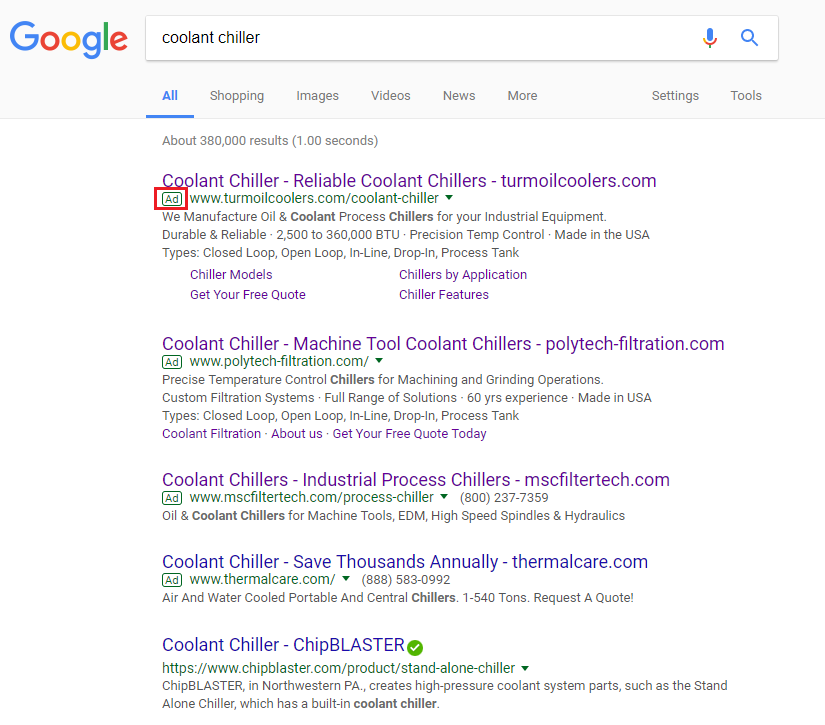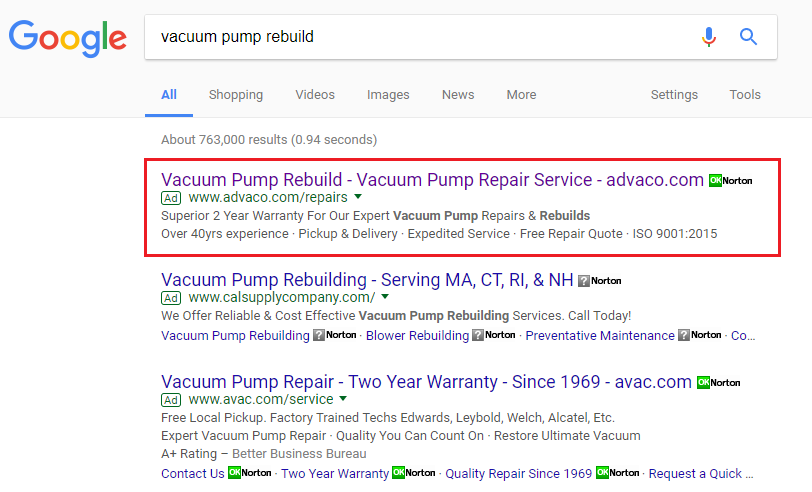Pay-per-click (PPC) advertising, also commonly referred to as paid placement, is a fairly complex world, if you want to understand the ins and outs of it all. You can easily get overwhelmed trying to grasp new terms like sitelinks, callouts, structured snippets, CTR’s, bid positioning, CPC’s…and I could keep going on. However, at its base, PPC is just an effective way to bring potential buyers into your website.
What is Pay-per-Click (PPC)?
PPC is a form of search engine marketing, which, exactly as it sounds, involves advertising on search engines – places like Google, Bing, and Yahoo, where you likely search every day. You may not have noticed it before, but when you search for a product or service through those portals, the top few results are often ads. These ads can easily blend in with the organic search results because the only thing differentiating the two is a tiny inconspicuous box that says “ad” (see image).


How it Works
Without going into too much detail, I want to give a basic explanation of how paid placement marketing works on the account manager end. First and foremost, the reason it’s also known as PPC is because you literary only pay per click — when visitors click on your ad and are led into your website. You’re never charged when your ad appears on the search results (known as an impression), but is not clicked.
Every keyword is part of an ad auction, meaning companies bid against other companies with the same keywords to get the best positioning on the search results page. So, if I’m only willing to pay $1.00 per click for the keyword “touch screen manufacturer” and my competitor will pay $1.50, then he/she will win the auction and show up in the first spot, whereas my company will show up on the second spot. Usually, there’s a lot more than two companies involved in the ad auction, but the concept works the same way where the higher bidders win the better positioning. Most advertisers aim to get within the top four spots because they’re located at the top of the page where visitors will see them first. Once you hit spot number five, you get moved to the bottom of the page (as seen below).

Just like you’re an expert on your business, account managers are specialists when it comes to optimizing your marketing campaigns. That doesn’t mean that you should just choose your daily budget — the max amount you’ll get charged every day for clicks – and let your marketing firm do the rest. The best campaigns are collaborative, where you give your account managers regular insight into your business and they use their skills to incorporate that knowledge into the campaign. You might give them a list of your most popular products and ad copy that’s been effective in the past, or look over the campaign’s keywords to make sure they make sense and that none are missing.
What Are You Waiting for?
Now that you understand paid placement marketing, it’s time to start thinking about investing in a campaign. I would tell you all the reasons why you need PPC to grow your business, but that would take another whole blog post (coming soon). Until then, do you really want your competitors showing up on the top of the search results and stealing all your potential business?
If not, we’re happy to get you started with a campaign. Shoot us an email – leads@web-kare.com.
